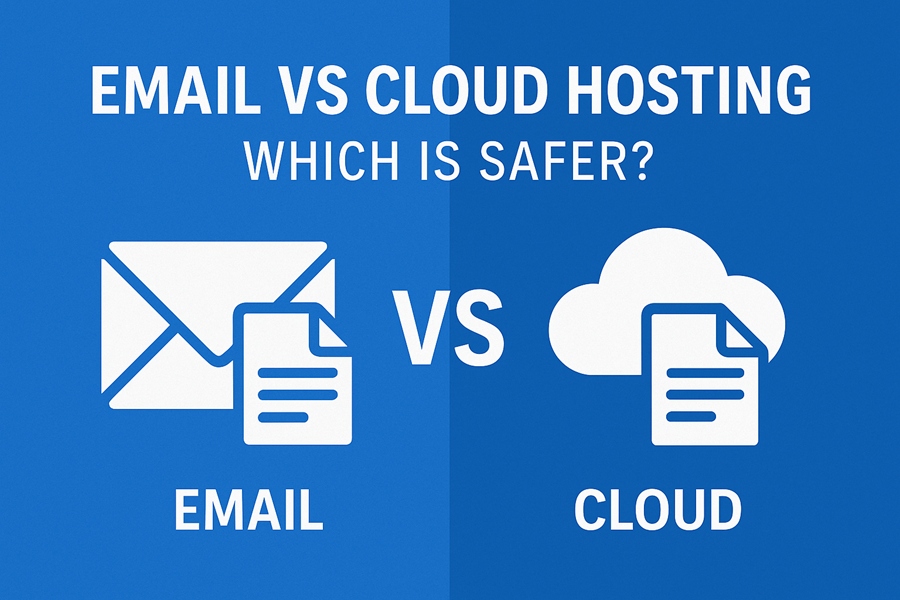We all share files online—whether it’s work documents, personal photos, or large projects. But how do you send files safely and privately? The two most common ways are:
- Email attachments
- Cloud file hosting services
In this guide, we’ll compare both methods, highlight their pros and cons, and explain why cloud hosting (like Up2Share) is often the better solution for private file sharing.
1. Sending Files by Email Attachments
Email remains the most familiar way to send documents, but it comes with serious limitations.
✅ Pros of Email Attachments
- Easy to use – everyone has an email account
- Quick for small files (under 25MB in Gmail/Outlook)
- No extra service needed
❌ Cons of Email Attachments
- File size limits (usually 25MB) – not suitable for videos, archives, or large projects
- No control once sent – you can’t revoke or update the file
- Not very private – emails are often stored on multiple servers and scanned by providers
- Risk of misdelivery – a single wrong address exposes your file
Email is fine for light, everyday documents, but if privacy and control matter, it’s far from ideal.
2. Sending Files via Cloud Hosting
Cloud hosting platforms (like Up2Share) let you upload your file, generate a secure link, and share it with anyone.
✅ Pros of Cloud Hosting
- Handles large files – gigabytes of data without email limits
- Privacy controls – set passwords, expiration dates, or private links
- Access anywhere – files are stored online, not locked in someone’s inbox
- Version control – you can replace or delete the file anytime
- Static site hosting – some platforms (like Up2Share) even let you host entire websites or project pages
❌ Cons of Cloud Hosting
- Requires an upload step (not instant like attaching to an email)
- Some platforms have bandwidth or storage restrictions
Still, when it comes to security, flexibility, and control, cloud hosting is far superior to email.
Which Is More Private?
- Email privacy: Limited. Once sent, your file may be stored indefinitely on email servers. It’s also prone to interception if not encrypted end-to-end.
- Cloud hosting privacy: Stronger. Services like Up2Share allow private sharing links, optional passwords, and automatic expiry. You decide who can access your file, and for how long.
👉 If privacy matters (personal documents, client projects, legal contracts), cloud hosting wins every time.
🚀 Why Use Up2Share for Private File Sharing?
Unlike traditional email, Up2Share is built for secure file sharing:
- Share large files without limits
- Protect files with passwords & expiry links
- Host not just files but also static websites or download pages
- Clean, fast, and no invasive tracking
It’s a modern solution for anyone who wants privacy + flexibility in how they share files online.
Conclusion
While email attachments are still fine for quick and small documents, they fall short when you need privacy, control, and scalability. Cloud hosting platforms like Up2Share offer better tools to keep your data safe and easily accessible.
👉 Next time you need to send files privately, skip the email attachment—upload to Up2Share instead.
Stay Updated with Up2Share!
Subscribe to our newsletter for the latest tips on file sharing, updates on static website hosting, and exclusive offers. Join our community and be the first to know about new features and services!
